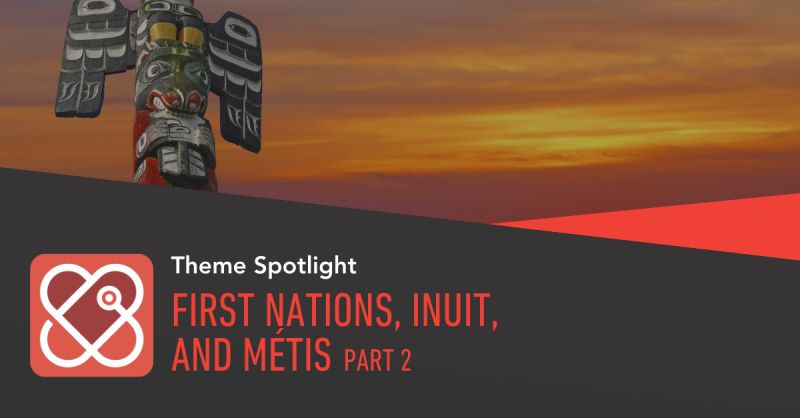First Nations, Inuit and Métis
The First Nations, Inuits and Métis theme is led by Dr. Malcolm King, a member of Mississaugas of the Credit First Nation, and Dr. Alexandra King, a member of the Nipissing First Nation (Ontario), both from the University of Saskatchewan, Saskatoon, SASK, Canada.
The CHF Alliance focuses on reconciliation research. Using etuaptmumk (Two-eyed Seeing)(1), we seek to interweave Indigenous ways of knowing, being and doing with Western science and to work with Indigenous peoples to improve the prevention, early diagnosis and treatment of HF. The vision is to find the harmonies between Indigenous and Western approaches to create sustainable, community-centered, culture-based approaches to HF research and care.
Mitewekan – Indigenous advisory council
Through to the establishment of Mitewekan (Cree word meaning “The spirit behind the heartbeat”), the network will reconceptualize HF to reflect Indigenous ways of knowing and being (2), and work with Indigenous people to learn how to best to incorporate Indigenous ways of doing in the prevention and care of HF. Mitewekan is a partnership between the Pewaseskwan Indigenous Wellness Research Group at the University of Saskatchewan, The Key First Nation, the Yorkton Tribal Council, the Cardiovascular Network of Canada (CANet) and the CHF Alliance. It’s made up of Indigenous Elders, Knowledge Holders, people with lived/living experience of health conditions, and Indigenous health leaders from across Canada. Mitewekan provides guidance to the network on the contextualization and adaptation needed for culturally safe and responsive HF care and research. Mitewekan oversees a multifocal anti-oppression/anti-racism, cultural safety, ethical engagement and allyship curriculum, that includes key historical and contemporary forces that result in Indigenous health inequities, as well as Indigenous land and culture-based experiential learning opportunities, for network members, including patient partners. In addition to providing guidance to the network, Mitewekan oversees the provision of an Indigenous curriculum for network members, collaborates on proposal development, and oversees the development of Indigenous data sovereignty guidelines.
Indigenous team members
Dr. Alexandra King – Cameco Chair in Indigenous Health and Wellness, Assistant Professor General Internal Medicine, University of Saskatchewan.
Dr. Malcolm King – Health Researcher, University of Saskatchewan.
Ashley Secundiak – Project Coordinator, University of Saskatchewan.
Kehinde Ametepee – Research Manager, University of Saskatchewan.
Elder Sharon Jinkerson-Brass – Member of the Pewaseskwan indigenous Wellness Research Group, University of Saskatchewan.
Nicole Pasloski – Research Associate, University of Saskatchewan.
References
1. Bartlett C, Marshall M, Marshall A. 2012. Two-Eyed Seeing and other lessons learned within a co-learning journey of bringing together indigenous and mainstream knowledges and ways of knowing. J Environ Stud Sci 2:331–340. https://ceaaacee.gc.ca/050/documents/p80156/132968E.pdf
2. Elders, Knowledge Holder testimony; one First Nation Elder described a spiritual wound in having their heart labelled as failed or in failure. They also rejected narratives of brokenness. Instead, they felt HF should be interpreted within a resiliency framework.
Source: Canadian Heart Function Alliance

